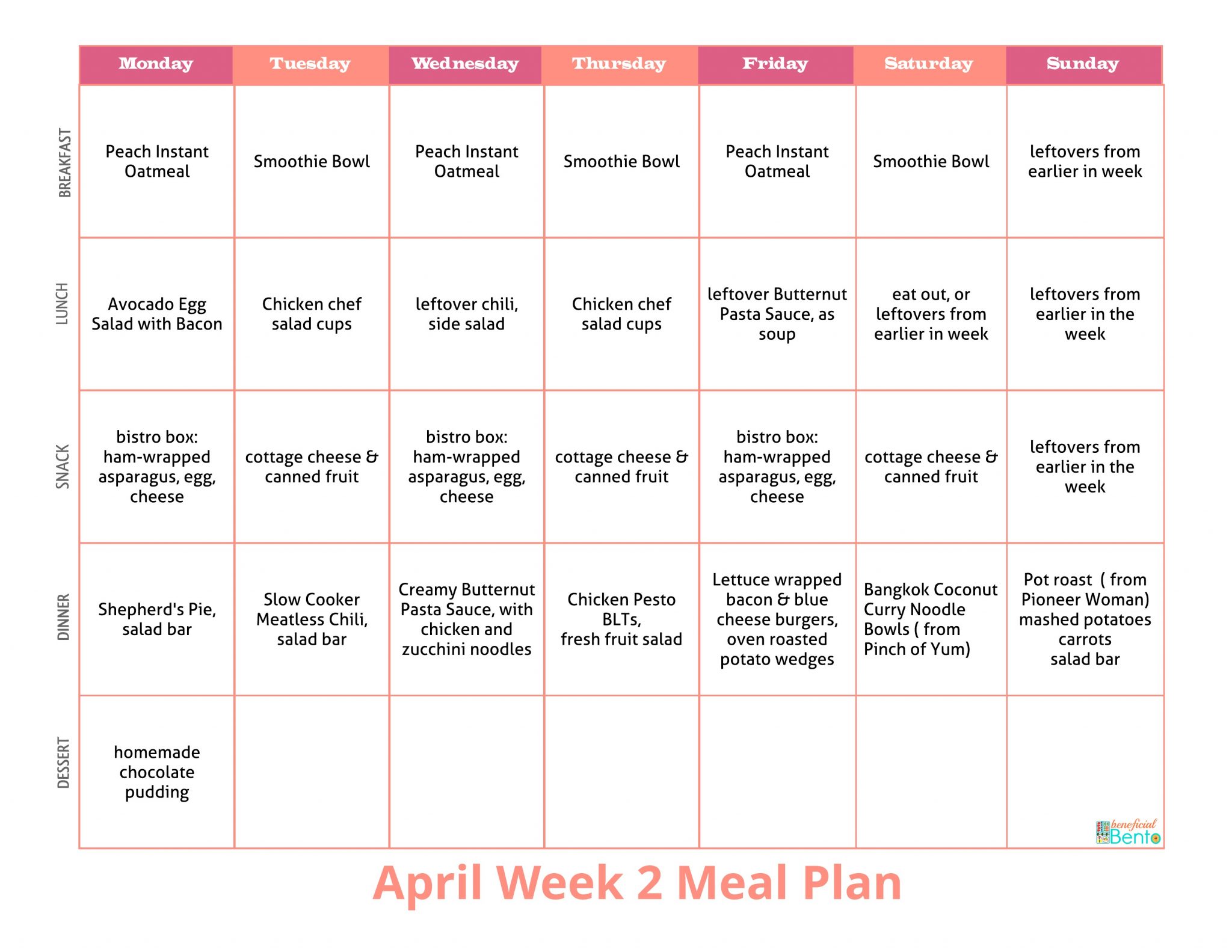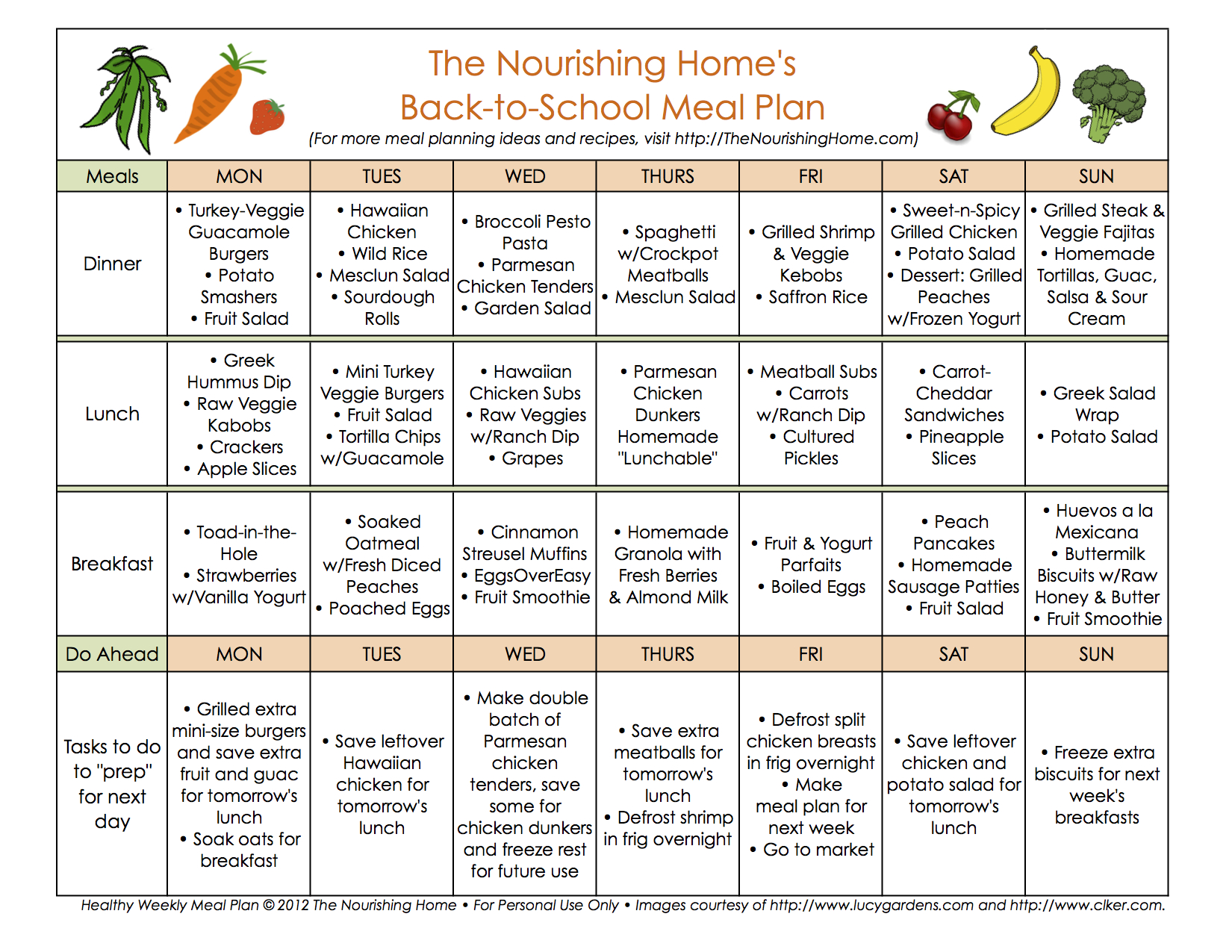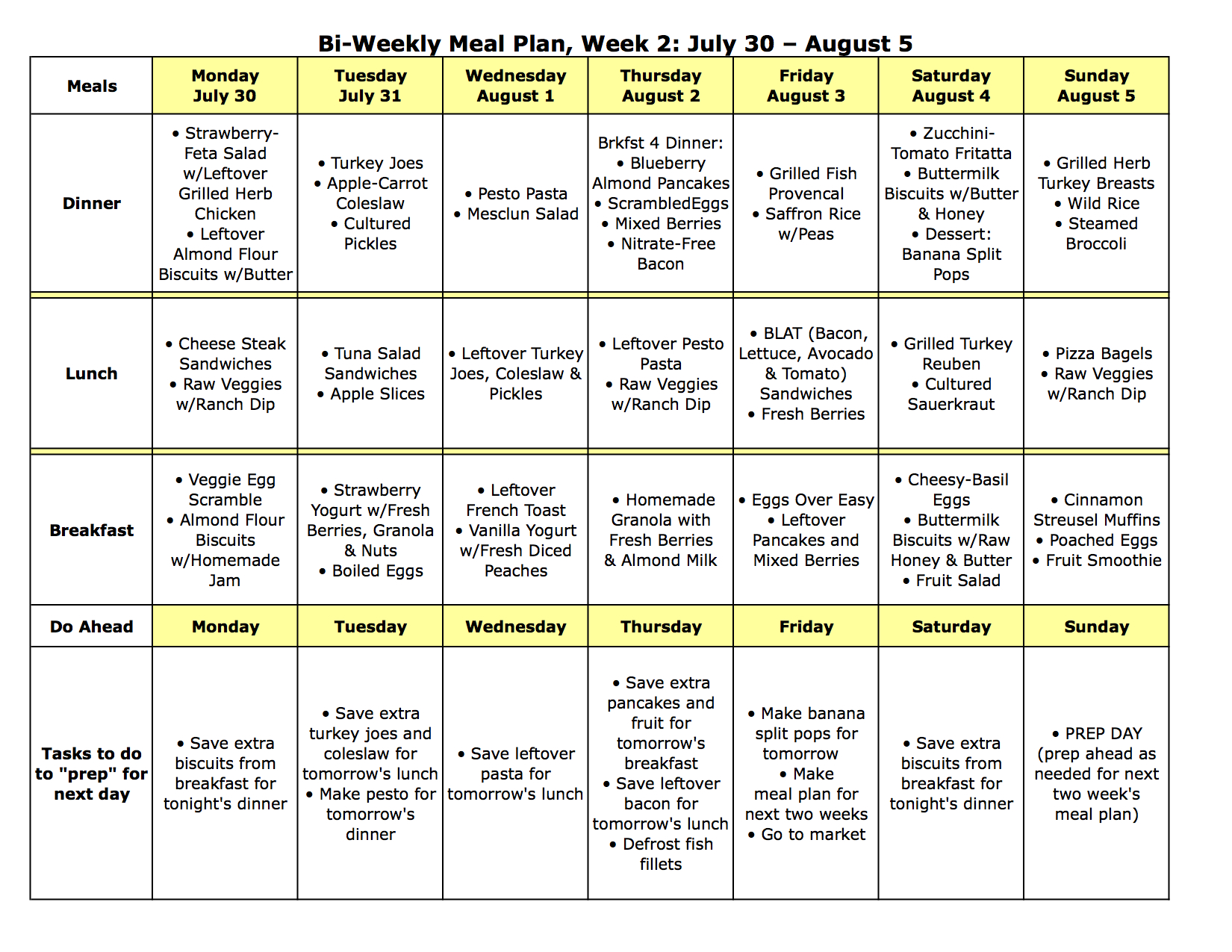To plan meals for the week, list your favorite recipes and create a shopping list. Schedule each meal on a weekly calendar.
Meal planning saves time, reduces stress, and ensures balanced nutrition. By organizing meals ahead, you can avoid last-minute takeouts and unhealthy choices. Start by selecting a variety of breakfast, lunch, and dinner recipes that you and your family enjoy. Consider dietary needs and preferences to ensure everyone is satisfied.
Write down the ingredients required for each recipe, then compile a shopping list. This approach helps you stay organized and minimizes food waste. Stick to your plan, but stay flexible to accommodate unexpected changes. Meal planning enhances your lifestyle and promotes healthier eating habits.

Credit: www.beneficial-bento.com
Benefits Of Meal Planning
Meal planning helps you stay organized. It ensures you eat healthy meals. It also saves time and money. Let’s look at the benefits in detail.
Save Time And Money
Meal planning saves you time each day. You don’t need to decide what to cook. You already know what you will eat. This means less time spent on thinking and more time for fun activities.
Planning meals also saves money. You can buy items in bulk. You can also avoid buying unnecessary snacks. Bulk buying often costs less. You will also make fewer trips to the store. This reduces your fuel costs.
Reduce Food Waste
Meal planning reduces food waste. You only buy what you need. This means fewer items go bad in the fridge. Less food waste is good for the environment.
Here is a table showing the benefits of meal planning:
| Benefit | Description |
|---|---|
| Save Time | Less time spent deciding what to cook. |
| Save Money | Buy in bulk and fewer store trips. |
| Reduce Food Waste | Buy only what you need. |
Using a meal plan ensures you have a balanced diet. You can plan to include vegetables, fruits, and proteins. This way, you stay healthy and strong.
Setting Meal Planning Goals
Setting meal planning goals is essential for a successful week. It helps save time, money, and ensures healthy eating. Clear goals make meal planning easier and more effective.
Identify Dietary Needs
First, identify your dietary needs. This includes any allergies, intolerances, or preferences. Knowing this helps you plan meals everyone will enjoy.
- Allergies: Check for common allergens like nuts, dairy, or gluten.
- Intolerances: Avoid foods that cause discomfort, like lactose or spicy foods.
- Preferences: Include favorite foods and avoid disliked ones.
Consider any special diets, such as vegan, keto, or low-carb. This ensures your meals align with your health goals.
Establish A Budget
Next, establish a budget for your meals. This helps you stay within financial limits and avoid unnecessary expenses.
| Item | Weekly Budget |
|---|---|
| Groceries | $100 |
| Snacks | $20 |
| Dining Out | $30 |
Plan meals based on your budget. This might include buying in bulk or choosing seasonal produce.
- Make a shopping list.
- Stick to the list to avoid impulse buys.
- Look for sales and discounts.
Following these steps helps you plan meals that are both healthy and budget-friendly.
Creating A Weekly Menu
Planning meals for the week can save time and reduce stress. By creating a weekly menu, you ensure your family eats balanced and varied meals. Let’s dive into how to create a great weekly menu.
Choose Balanced Meals
Balanced meals are important for good health. Each meal should have proteins, carbohydrates, and fats. Use the table below to plan balanced meals.
| Meal | Protein | Carbohydrate | Fat |
|---|---|---|---|
| Breakfast | Eggs | Whole grain toast | Avocado |
| Lunch | Grilled chicken | Brown rice | Olive oil in salad |
| Dinner | Salmon | Quinoa | Nuts in salad |
Incorporate Variety
Variety keeps meals exciting and ensures a range of nutrients. Follow these tips to add variety to your weekly menu:
- Change protein sources: Use chicken, fish, tofu, and beans.
- Mix up vegetables: Try carrots, broccoli, spinach, and bell peppers.
- Alternate grains: Use rice, quinoa, pasta, and barley.
Below is an example of a varied weekly menu:
| Day | Breakfast | Lunch | Dinner |
|---|---|---|---|
| Monday | Oatmeal with berries | Turkey sandwich | Grilled chicken with veggies |
| Tuesday | Greek yogurt with honey | Quinoa salad | Salmon with rice |
| Wednesday | Smoothie with spinach | Chicken wrap | Beef stir-fry with noodles |
| Thursday | Scrambled eggs and toast | Vegetable soup | Shrimp tacos |
| Friday | Pancakes with fruit | Caesar salad | Pasta with marinara sauce |
Grocery Shopping Strategies
Planning meals for the week can save you time and money. Effective grocery shopping strategies are key to this process. Learn how to shop smart with these tips.
Make A Shopping List
Creating a shopping list helps you stay organized. List all ingredients you need for the week. Group items by category, such as fruits, vegetables, and dairy.
- Fruits: Apples, Bananas, Oranges
- Vegetables: Carrots, Broccoli, Spinach
- Dairy: Milk, Cheese, Yogurt
Check your pantry before adding items to your list. Avoid buying items you already have. This reduces waste and saves money.
Shop Seasonal Produce
Buying seasonal produce is cost-effective and fresh. Seasonal items are often on sale. They also taste better.
| Season | Produce |
|---|---|
| Spring | Asparagus, Strawberries |
| Summer | Zucchini, Peaches |
| Fall | Squash, Apples |
| Winter | Broccoli, Citrus Fruits |
Visit local farmers’ markets for fresh, seasonal produce. These markets often have better prices than grocery stores. Plus, you support local farmers.
Meal Prep Techniques
Planning meals for the week can save time and reduce stress. Using effective meal prep techniques ensures you have healthy, delicious meals ready. Here are some key techniques to help you get started:
Batch Cooking
Batch cooking involves preparing large quantities of food at once. This technique is perfect for busy weeks. You can store the food in the fridge or freezer for later use. Here are some tips:
- Pick a day to cook multiple dishes.
- Use large pots and pans to save time.
- Store meals in portioned containers.
| Dish | Storage Method | Duration |
|---|---|---|
| Chili | Freezer | 3 months |
| Grilled Chicken | Fridge | 4 days |
| Vegetable Stir Fry | Fridge | 5 days |
Use Time-saving Tools
Utilizing time-saving tools can make meal prep easier. These tools help you cook quickly and efficiently. Here are some must-have tools:
- Slow Cooker: Cooks meals while you are busy.
- Instant Pot: Speeds up cooking time for many dishes.
- Food Processor: Chops and slices ingredients quickly.
These tools are essential for a smooth meal prep process. They can help you prepare healthy meals in less time.

Credit: thenourishinghome.com
Storing Prepared Meals
Planning meals for the week saves time and effort. An essential part of this process is knowing how to store prepared meals properly. This ensures your food stays fresh and safe to eat throughout the week. Below are some guidelines to help you store your meals efficiently.
Proper Container Use
Use airtight containers to store your meals. This helps keep your food fresh and prevents spills. Glass containers are great because they are microwave-safe and don’t absorb food odors. Plastic containers are lighter and more convenient for travel.
Consider using BPA-free plastic containers. BPA is a harmful chemical that can leach into your food. Always choose containers that are labeled as BPA-free.
Stackable containers save space in your fridge. Look for containers that stack neatly on top of each other. This will help you maximize your storage space.
Label And Date Meals
Labeling your meals is crucial. Use a marker to write the name of the dish on the container. Add the date you prepared it. This helps you keep track of how long the food has been stored.
Consider using color-coded labels for different types of meals. For example, use green labels for salads and red for meats. This makes it easier to find what you need quickly.
Organize your fridge by placing newer meals at the back. Put older meals at the front. This ensures you eat the older meals first and reduce waste.
| Type of Container | Benefits | Example |
|---|---|---|
| Glass | Microwave-safe, does not absorb odors | Pyrex |
| Plastic | Lightweight, travel-friendly | Rubbermaid |
| Stainless Steel | Durable, keeps food warm | Bento Boxes |
Adapting Plans For Busy Schedules
Planning meals can be tough with a busy schedule. You need quick, easy, and flexible recipes. Adapting your meal plans can save you time and stress. Here are some tips to help you manage better.
Quick Meal Ideas
Quick meals are essential for busy days. These recipes take less than 30 minutes:
- Stir-fry Vegetables: Use frozen veggies and pre-cooked chicken.
- Wraps: Fill whole-wheat tortillas with leftovers and veggies.
- Omelets: Add cheese, spinach, and tomatoes for a quick meal.
Flexible Recipes
Flexible recipes let you use what you have at home. Here are some ideas:
- Pasta Dishes: Mix pasta with any veggies, meat, or sauce.
- Salads: Combine greens, protein, and a variety of toppings.
- Rice Bowls: Use rice, beans, and your favorite veggies and sauce.
Having a plan helps you stay organized. You can still enjoy healthy meals even with a busy schedule. Use these tips to make meal planning easier.
Staying Motivated
Planning meals for the week can sometimes feel overwhelming. Staying motivated is key to sticking with your plan. Here are some helpful tips to keep you on track.
Track Progress
Tracking progress helps you see how far you’ve come. Use a simple chart or a journal. Write down each meal and check it off as you go. Tracking gives you a sense of accomplishment.
| Day | Meal | Status |
|---|---|---|
| Monday | Grilled Chicken Salad | Completed |
| Tuesday | Spaghetti and Meatballs | Completed |
Celebrate Success
Celebrating success keeps you motivated. It is important to recognize your hard work. Reward yourself with a treat or a fun activity. Small celebrations can boost your morale.
- Have a special dessert
- Watch your favorite movie
- Take a relaxing bath
Remember, each step forward is a success. Keep celebrating your efforts to stay motivated.

Credit: thenourishinghome.com
Frequently Asked Questions
How To Make A Weekly Meal Plan?
To make a weekly meal plan, list your favorite meals, check your pantry, and create a grocery list. Plan balanced meals, including proteins, vegetables, and grains. Prep ingredients in advance to save time.
How Do I Prep Meals For The Week?
To prep meals for the week, plan your menu, make a shopping list, and batch cook on weekends. Store meals in airtight containers. Reheat as needed.
What Are The 6 Steps To Plan Weekly Meals?
1. Assess your schedule. 2. Choose recipes. 3. Make a grocery list. 4. Shop for ingredients. 5. Prep ingredients. 6. Cook and store meals.
How Many Meals Should I Plan For A Week?
Plan for 21 meals a week: 7 breakfasts, 7 lunches, and 7 dinners. Adjust based on your lifestyle and needs.
Conclusion
Planning meals for the week can simplify your life. It saves time, reduces stress, and promotes healthy eating. Use these tips to create a balanced meal plan. Enjoy a variety of delicious and nutritious foods. Start meal planning today for a more organized and healthier lifestyle.
